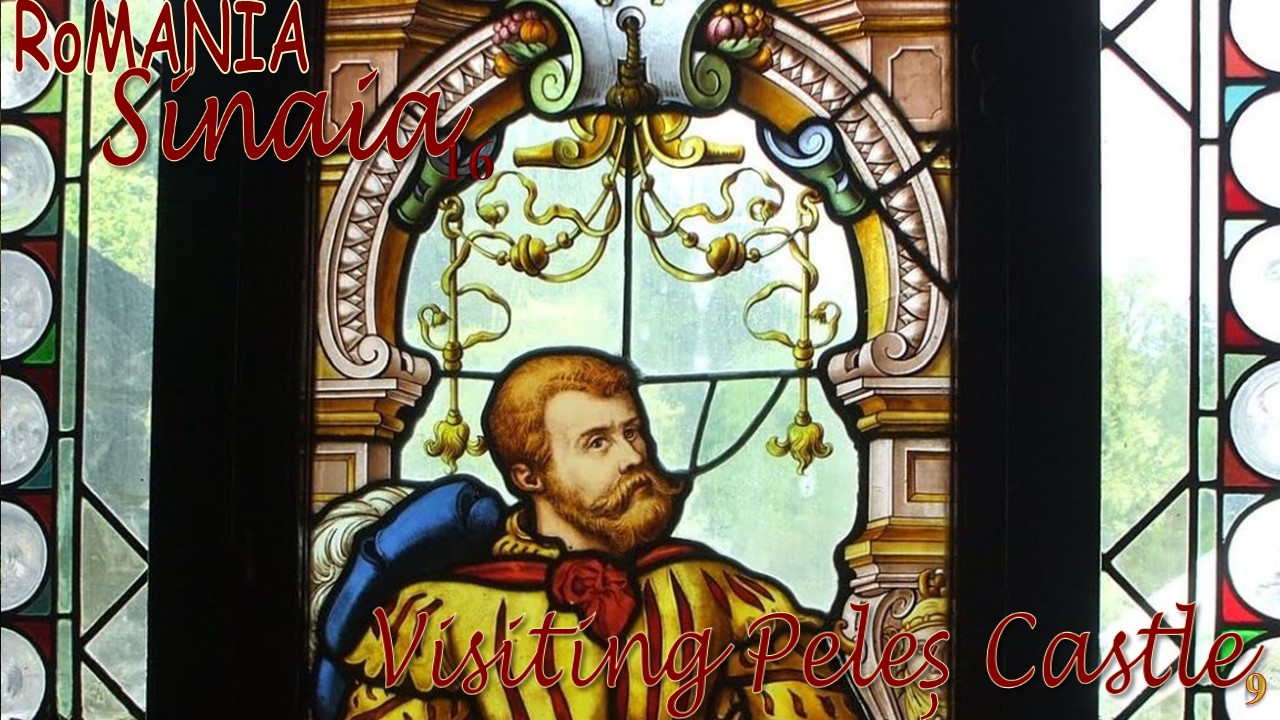Sinaia 16 Visiting Peles Castle9 - PowerPoint PPT Presentation
Title:
Sinaia 16 Visiting Peles Castle9
Description:
„Eu, Carol, și al meu popor, Zidit-am, într-un gând și dor, În timp de lupte-al meu regat, În timp de pace-al meu palat.” V. Alecsandri – PowerPoint PPT presentation
Number of Views:6
Title: Sinaia 16 Visiting Peles Castle9
1
RoMANIA
Sinaia
16
Visiting Pele? Castle
9
2
Pele? Castle is a Neo-Renaissance castle in the
Carpathian Mountains, near Sinaia, in Romania.
This castle was used as a summer residence by the
kings of Romania, built at the wish of the first
Romanian king, Carol I (1866-1914). The
castle was a museum from its first years, opened
when the royal family did not use it, the tickets
sold financing Queens Elisabeta charity works.
After the castle was confiscated by the communist
regime, most of the art collections were
transferred to various art museums
3
Sufrageria Dining room
4
The ceiling squares, like the 36 chairs in the
hall are upholstered in Cordoba leather
5
Sufrageria Dining room
6
(No Transcript)
7
Garnitura Atelier italian
8
The Moorish room
9
The last, big guestroom, following The Florentine
Hall and the colonnade room (or the room of the
mirrors), is the Moorish room, representing a
wing built in 1891. The decoration elements in
Spanish-Moorish style, motifs so-called
"arabesques" of gilded and polychrome stucco,
inspired from the ornaments of the palace of the
Moorish kings of Granada, from Alhambra (Spain,
13th-14th century), cover entirely, with a fine,
shiny, decorative lacework, the walls and the
ceiling of the hall
10
The Moorish room
11
In the spaces between the windows, we notice big
panoplies of oriental weapons from the
16th-19th centuries, and as high as the back
wall, a marble fountain, the reproduction of an
Arab piece, of a mosque, from Cairo. The
furniture is almost entirely Arab, with
mother-of-pearl and ivory intarsia
12
The Moorish room
13
(No Transcript)
14
Antechamber of Turkish room
15
The colonnade room gives into, on the left side,
the Turkish salon. Used as a smoking area, the
room is furnished with comfortable Turkish sofas,
embedded in the walls together with low chairs,
around specific marquetry worked tables
16
Bronze sculpture Arabs and the camel by French
artist Louis Hottot
17
The Turkish Salon (1883) is entirely covered in
traditional silk embroidery whose motifs recur in
the tapestry of the furniture reminding of the
oriental style. Silk embroideries covering the
furniture, the walls and the ceiling have been
presented at the 1873 Vienna Universal Exhibition
18
(No Transcript)
19
(No Transcript)
20
Stained glass windows with inscriptions from
Koran, a Turkish water-pipe, the tobacco bag
supported by three Turkish swords are completing
the decoration
21
(No Transcript)
22
Staircase to the first floor
23
(No Transcript)
24
The tapestry collection of the Peles National
Museum includes, between other works of great
artistic value, six large pieces made in the
workshop Erulo Eroli (1854 1916), in Rome. The
decoration of the tapestries was inspired by the
bas-reliefs of the Triumphal Arc of Titus, the
Roman Forum
25
(No Transcript)
26
(No Transcript)
27
(No Transcript)
28
Venetian lanterns, pair, lime wood, carved and
gilded, concert hall foyer Felinare venetiene,
pereche, din lemn de tei sculptat si aurit
foaierul salii de concerte
29
(No Transcript)
30
In order to make the Pele? Castle a modern
residence, King Carol I introduced hot-water
heaters (1881) and gas radiators, an elevator
(lift) manufactured in 1903 by Wilhelm Brückner's
Viennese comp, a telephone station (1885), power
station in 1894 and a sewerage system. It was the
first royal estate to have air ventilation systems
31
(No Transcript)
32
(No Transcript)
33
Mirror frame detail
34
Gustav Bregenzer Copy of Annunciation by Gerard
David (1450-1523)
35
Gustav Bregenzer Copy of Annunciation by Gerard
David (1450-1523)
36
Marble hall
37
Marble hall
38
(No Transcript)
39
(No Transcript)
40
(No Transcript)
41
(No Transcript)
42
Text Internet Pictures Sanda Foisoreanu
Internet Daniela Iacob All
copyrights belong to their respective owners
Presentation Sanda Foisoreanu
2019
Sound Radu Lupu - Brahms - Piano
Concerto No.1 in D minor, Op.15 - I. Maestoso -
Poco più moderato































